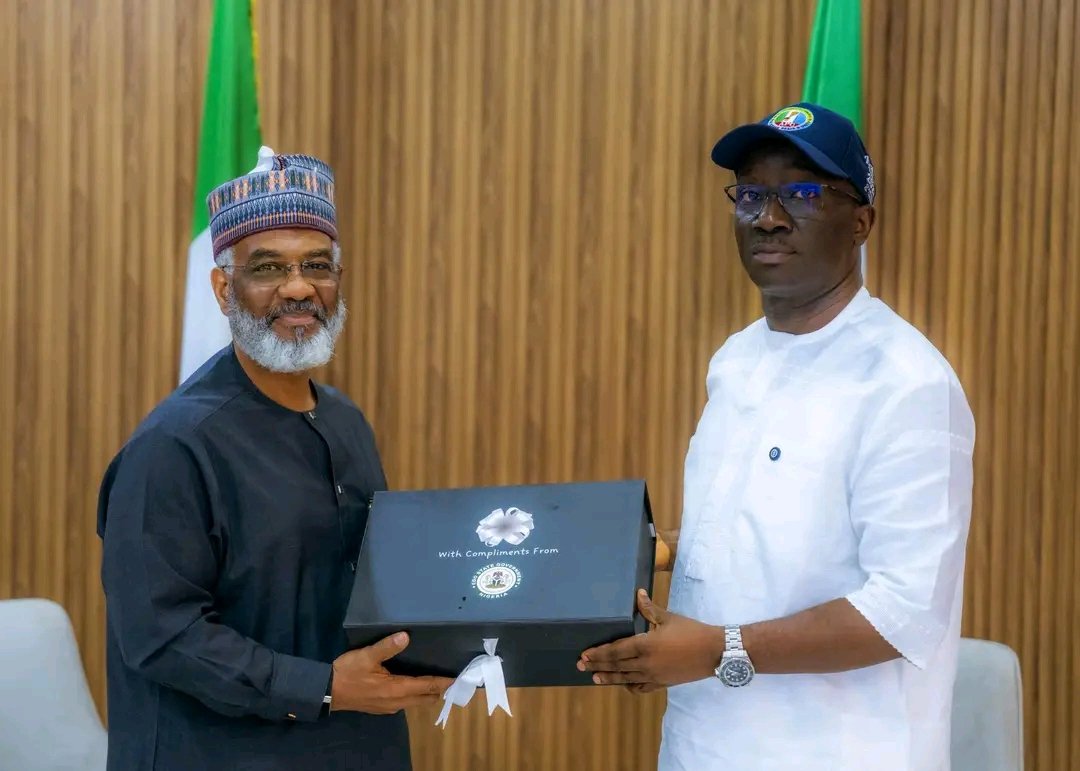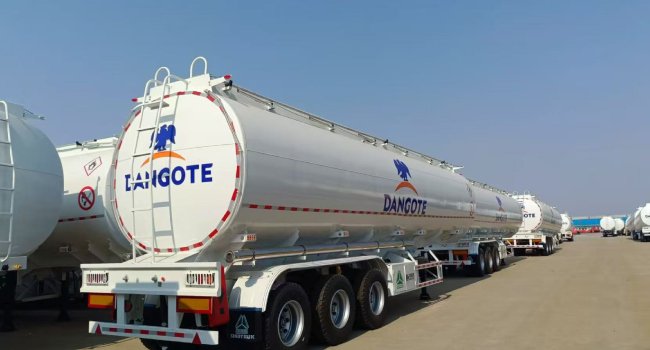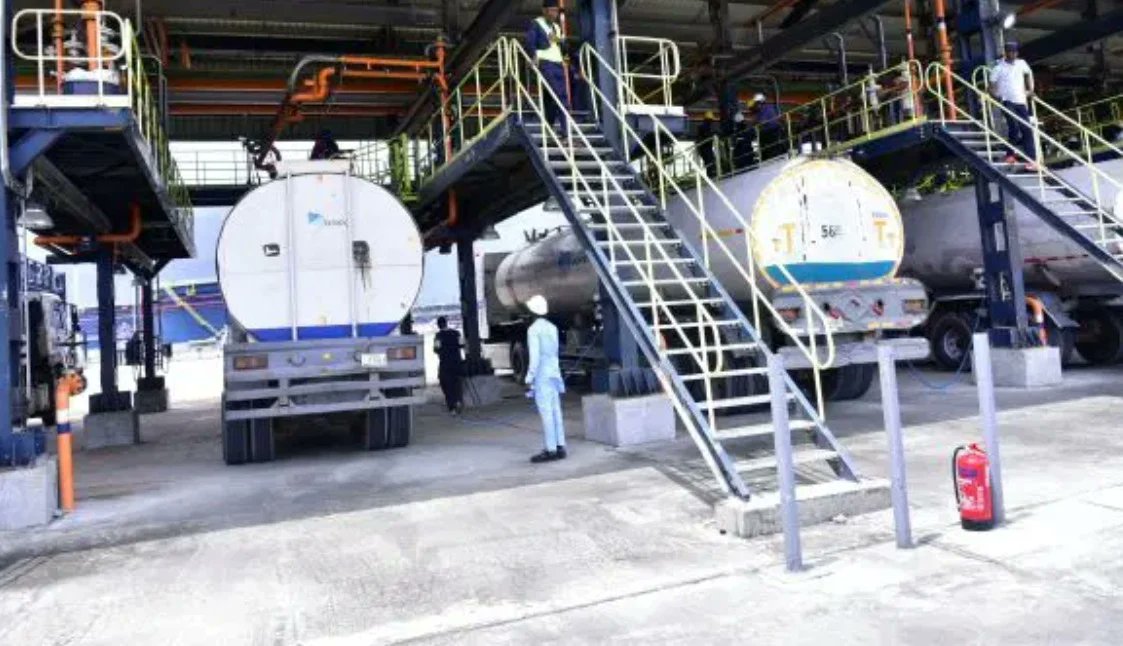Nigeria Must Find Other Major Means Of Generating Revenue Other Than Crude Oil – Dr. Timi Olubiyi

Amid devastating effects of the novel Coronavirus pandemic on all facets of human life including the economy of nations all over the world, Dr. Timi Olubiyi, a Ph.D. holder in Entrepreneurship and Small Business Management told P.M. EXPRESS what Nigeria can do to survive post COVID-19 economic recession. Dr. Olubiyi, a prolific investment coach, Chartered Member of the Chartered Institute for Securities & Investment (CISI), and a financial specialist says the dropped in the global oil price portends great danger to a Nigeria economy which major source of revenue is from crude oil
As a finance expert, what do you think is the implications of the low oil price in the global market (resulting in low revenue) to the Nigerian economy, especially a mono-economy like Nigeria?
I will react thus; the current situation of a plunge in global oil price is a reflection of demand and supply mechanism. Crude oil prices react to many variables; however, the recent demand disruption was largely due to lockdown and restrictions in many countries of the world occasioned by the Coronavirus (COVID-19). This has been the key reason for the plummet and perhaps crash in crude oil prices. Moreover transportation, industrial and manufacturing requirements, and demands fizzled out because of the impact of the pandemic. The major oil producers (Russia and Saudi Arabia) also failed to reach an agreement on production cuts recommended by the Organization of the Petroleum Exporting Countries (OPEC) to stabilize the price. This also intensified the price crash. The price of Brent, the benchmark for Nigeria’s crude oil fell below $25 a barrel for the first time since 1999, reaching a two-decade low in April 2020 mainly due to demand fall on fuel and energy globally.
Recall, when supply outweighs demand. price must go southwards. Such crude oil price change usually affects the economic ecosystem at every level. Because the exploration and export of crude oil plays a key role in the Nigerian economy and accounts for more than 90% of the country’s earnings and exports. The Naira can be under continuous pressure with reduced foreign exchange from crude oil earnings and also make importation very expensive. This development goes to threaten the implementation of the federal fiscal budget for 2020 and the financial stability of the state governments with heavy reliance on federal allocations for salary payments, project implementations, and bills payments due to reduced export crude oil revenue expectations.
In my view, Nigeria’s 2020 budget assumptions; such as the oil production volume of 2.18 million barrel per day, oil benchmark of $57, the N305 exchange rate to the US dollar, GDP growth rate of 2.93%, and an inflation rate of 10.81% projections now appear totally out of reach. Additionally, the low crude oil price and COVID-19 pandemic effect are likely to significantly impact negatively on these national expectations. It might further influence the occurrence of inflation in the country because the fate of the Naira is usually tied to the global oil price regime. It can cause a drop in the external reserve level, restrict the availability of funds, causing poor funding of investments and projects; weakening of foreign exchange earnings, rescheduling of debt obligations, increasing cost of living, encouraging smuggling, and diversion of petroleum products practices. Apart from all these, the big challenge that Nigeria continues to face due to this current reality is mainly the paucity of revenue.
Consequently, it is pertinent to note as a country, we must explore other avenues to make our economy viable rather than depend solely on crude oil for foreign earnings. The option is to focus on the non-oil sectors and give it optimal attention such as the manufacturing, agriculture, information technology, and most importantly the SME sector which can drive job creation, improve industrialization, increase GDP performance, and play a crucial role in the process of economic growth.
As ways of tackling the low oil price and reduce the impact of the multiplier effect of COVID-19 pandemic on the economy, the Nigerian government proposed a revised budget, do you think this will help the economy?
Even though it is a laudable approach in my opinion, it currently appears that the current situation requires more measures. Nevertheless, the economic managers need to be commended for being proactive and responsive, in the area of striving to respond to fiscal and monetary expectations. Because of the dwindling crude oil prices, cut in excessive and heavy recurrent expenditures is suggested. The country may need to observe austerity measures in all arms of government. Significant cuts need to be made to our national overheads and non-essential statutory spending. However, investment could still be concentrated more on health, education and infrastructure development. If we improve on infrastructure, the economy of Nigeria will bloom because it will impact on non-oil sector and create job opportunities. Because of the impact of the COVID-19, the Central Bank of Nigeria (CBN) on behalf of the Federal Government can include further economic stimuli to non-oil sectors to boost production, reduce job loss, and enhance economic activities in Nigeria especially the agriculture sector and the SME sector. As it stands, our country has a readily available market because of the huge consumer population but there is a need for government to remove factors that have continued to constrain the SME sector such as erratic power supply, decrepit infrastructure, and excessive tax burden among others. SMEs and the agriculture sector can create employment opportunities, boost exportation activities, improve the Nigerian economy and boost foreign exchange earnings if the sector improves.
In the revised budget the government keeps spending intact, expenditure was only cut by meager 0.06 percent according to Finance Minister Zainab Ahmed. No doubt this will result in more borrowing; Nigeria will now rely on borrowing to finance major projects. We gathered that expected N5.4 trillion budget deficit will be financed by the local debt market, and concessionary loans from IMF, the World Bank, Islamic Development Bank, and Afreximbank, do you think this is good for the economy?
The way it is right now, the Nigerian crude oil revenue expectation declined by more than 60 percent due to the current realities. To this end the year 2020 budget has been further amended after a downward revision, making it the second time this year due to dwindling oil revenues and the new Coronavirus(COVID-19) pandemic. The initial assumed benchmark according to the Ministry of Finance was oil price at $57 a barrel, reduced to $30 a barrel, and now further revised to a worst-case scenario of $20 a barrel. Meanwhile the benchmark production was also cut to 1.7 million barrels per day (bpd), from the 2.1 million bpd initially proposed in the budget. These are part of measures to meet the fiscal year budget expectations. However, our economy will strive more on infrastructure development spending not on recurrent expenditures. So, if the borrowings are channeled to handle the infrastructure projects which I hope, then we are good to go. As a nation, high importation, capital flight, and weak capital importation are some of the challenges that the government should face with policy responses to reduce their impact on our economy. Debt is bad at this time if it’s secured only to finance consumption.
Over-dependency on oil as the major source of revenue has been seen as a bigger problem for Nigeria if urgent action is not taken now, what do you think about this?
The broadening of the economy especially the revenue base with the non -oil sector looks opaque if there is no guarantee of at least a steady power supply, as this is the sustaining force of any productivity in an economy. A steady power supply in Nigeria will totally affect the economic activities in the country and the cost of doing business. The power supply in the nation must be consistent to ensure the existence of serious non-oil sector economic activities. The country’s economy can only attain and maximize its potential if there is a consistent power supply. The government needs to do more in ensuring the availability of this very important infrastructure in the country. Furthermore, Nigeria is yet to fully explore the sector of science and technology to boost its financial economy. This sector has been the source of technological innovations and digital economy boom in countries such as China, India, and Japan. The development of science and technology is integral to diversification and the subsequent development of the Nigerian economy. The use of technology will allow the improvements in our health systems, citizens’ welfare, education, international trade and infrastructure development. In the business world, it will aid automation of common processes in business, such as distributions, sales, after-sales services, and inventory management thereby increasing ease of doing business. The agricultural sector that have been neglected over the years need to be revamped, as the country’s population has been projected by the United Nations to surpass the United States by 2050. The food security policy framework to prepare for this population surge and the initiatives to attract investments into the agriculture sector is highly necessary Post COVID -19.

What can you say about diversification as a solution to the Nigerian economy?
Though I do not share the view that the Nigerian economy lacks diversification, overdependence on crude oil earnings has been the case. Nigeria is well diversified in terms of people, culture, resources and government revenue expectations. But the true scenario is that we depend largely on revenue from crude oil sales for foreign exchange earnings. However, I strongly believe we can achieve more by expanding our foreign exchange earnings capacity. For the records, through diversification we get revenue from these key components of non-oil sector which includes FGN share of VAT, company income tax (CIT), Customs (Import, Exports & Fees) independent and other revenues which includes dividends, recoveries/fines, among others. We can look inwards to improve on this government revenue positions.
The big issue is that our foreign earnings from crude oil experiences high volatilities. The national budget of the country depends on the earnings from this commodity for a larger percentage of its implementation. Therefore, dependency on crude oil earnings majorly has placed the country in a difficult position due to the decline in the oil price and COVID-19 pandemic. The option is for the government to encourage non-oil sectors and formulate policies to develop and promote competitive manufacturing, agriculture, information technology, trade, and investment sectors. Most importantly the SME sector needs to be strengthened with policy responses to improve service delivery and also boost production. This sector can drive job creation, improve industrialization, increase GDP performance, and play a crucial role in the process of economic growth. I am aware that Nigeria is endowed with several mineral deposits, this could serve as a huge source of additional revenue and employment opportunities. There are many more mineral deposits that are yet to be discovered and exploited in the different states of the country.
Nigeria is the third host economy for Foreign Direct Investment (FDI) in Africa, behind Egypt and Ethiopia. The country is among the most promising poles of growth in Africa and attracts numerous investors. So, policies to deepen foreign direct investment participation and encourage foreign portfolio investors should be considered. We equally need to review our regulatory roles on businesses especially SMEs and strengthen our legal system, by this market, and business failures will be reduced. Measures to ensure the existence of a sustainable and stable macroeconomic environment is important at this time. The current situation with COVID-19 has necessitated the need for economic stimulus for businesses to forestall high business closures and job loss.
COVID-19 has done more harm than good to countries of the world, their people, and their economy with the prediction of recession for many nations in the post-COVID-19 period, what will be the fate of Nigeria which just came out of a recession during the present government of Muhammadu Buhari?
In economic terms, the COVID-19 outbreak is impacting negatively on government revenues, businesses, families, and individuals across the world and more severely on a developing country like Nigeria where palliatives and stimulus packages can hardly go round to all the citizenries and businesses. Given the high uncertainty around production and services, the crash in global oil prices, the absence of positive economic catalysts and the continued increase in the number of COVID-19 incidences in Nigeria, a second recession in less than four years is likely. The COVID-19 pandemic is life-threatening and huge health risks, however the socio-economic impact is real and devastating, with many workers likely to face a looming job loss, job cuts, salary cuts, redundancy, and SMEs facing business closures. Couple with the bleak economic outlook, many Nigerians are more than likely will go further below the poverty line because the majority are in the informal business sector. The socio-economic and humanitarian challenges of the pandemic are very high. However, to cushion the effect of the pandemic impact, fiscal and economic stimulatory measures targeted at taxpayers to save their businesses and forestall high number of job losses can be considered by the Nigerian Government. Lastly, it is important to pay attention to rising debt servicing costs by the Federal government.
There is no doubt that the pandemic has affected Small Scale Enterprises (SMEs) and as an Entrepreneurship and Small Business Management expert, what do you think can be done to salvage these businesses.
The reality is that government response to the pandemic is reactive but so far it is commendable I must say. However, the real subject matter for the government and other economic policymakers are to see that the virus outbreak is short-lived in Nigeria. The economic impact of the deadly virus is very high and perhaps the government might need to consider more pragmatic palliatives such as social and fiscal policy palliatives, concessions on import trades because Nigeria is import-dependent, duties and port charges waiver to reduce the value chain disruptions and improve service deliveries, more low interest credit facilities and tax breaks- particularly cutting taxes to increase and improve disposable income needs to be considered at this time. Most SMEs run their businesses on loan facilities and the current situation has impeded their capacity to service these loans effectively, so government intervention is required to forestall massive business shut down. It is recommended that the guidelines and requirements to access the apex bank CBN announced palliative measures worth N3.5 trillion, should be relaxed to promote wider eligible participation. Those that truly and meaningfully require it might not be able to access it especially the micro-businesses and SMEs if the current requirement is not reviewed. Most importantly, the anti-corruption drive of the government needs to be stiffened, so that all social intervention and economic stimulus packages can be managed judiciously.
The Federal Government says it has reduced the bottleneck and easing the ways of doing business in Nigeria, has the business environment felt the impact of this?
Nigeria is ranked 131st worldwide, for the ease of doing business. This represents an improvement from the 2019 edition when the country was ranked 146th. This is a welcome development because Nigerian Government has introduced many programmes and policies to boost the ease of doing business in the country such as the signing of bilateral signed bilateral investment agreements with Algeria, Bulgaria, China, Egypt, France, Finland, Germany, Italy, Jamaica, Montenegro, Netherlands, North Korea, Romania, Serbia, South Africa, South Korea, Spain, Sweden, and Switzerland. Therefore, despite all the concerns about the state of our economy, I would say that Nigeria offers tremendous opportunities for non foreign and foreign investors. Nigeria has the largest population in the African continent (estimated 205 million as of March 2020). Nigeria is also home to a consumer population; consequently, our country remains an attractive investment destination.
The fact that there has been political stability and democratic governance since 1999 makes Nigeria a desired investment destination. However, to attract more investors into the country and also deepening the capital market in the country, the government needs to do more in the area of insecurity, rule of law, inadequate infrastructure, weak enforcement of contracts, and access to funds. The current macroeconomic uncertainty challenges need to improve in our country to attract investors and to improve our business environment. These factors have deterred many foreign investors from considering Nigeria as an investment destination. It has also induced many Nigerians to take their money and skills abroad. However, the policy of ease of doing business can be upgraded to encourage multinationals including car manufacturers to set up and enjoy some forms of incentives. Furthermore, the inflation rate is going high (currently at about 13%) and the exchange rate is getting out of control (already hitting N450 per US dollar) as of 25 May 2020. The stability of the macro-economy enablers also affects the ease of doing business; consequently, the government needs to stem with desirable policies these twin indicators.



















